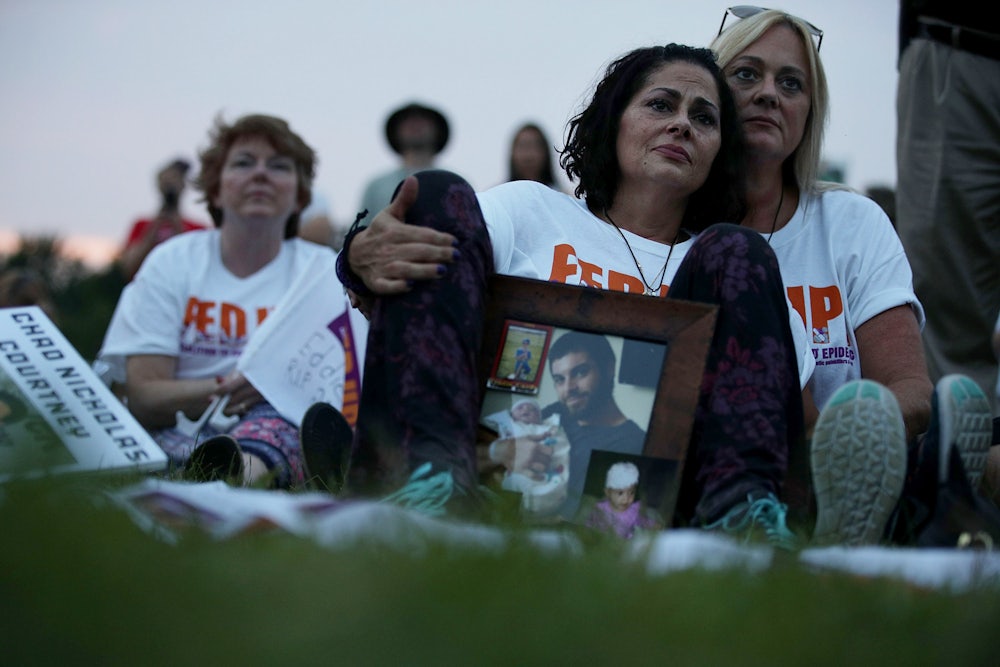New data released by the Centers for Disease Control estimate that 72,300 Americans died of a drug overdose in 2017, the highest number recorded yet. Dangerous synthetic opioids, like fentanyl, seem to be driving the increase, The New York Times reports:
Unexpected combinations of those drugs can overwhelm even experienced drug users. In some places, the type of synthetic drugs mixed into heroin changes often, increasing the risk for users. While the opioid epidemic was originally concentrated in rural, white populations, the death toll is becoming more widespread. The penetration of fentanyl into more heroin markets may explain recent increases in overdose deaths among older, urban black Americans; those who used heroin before the recent changes to the drug supply might be unprepared for the strength of the new mixtures.
Some New England states did see a decrease in the number of overdose deaths, but elsewhere, the number has either stayed the same or increased; the Times cites particularly sharp increases in Ohio, Indiana, and West Virginia.
President Donald Trump bragged in May that he had acquired significant federal funding to fight the epidemic:
Trump in May: "We got $6 billion for opioid and getting rid of that scourge that’s taking over our country. And the numbers are way down." https://t.co/nNnE7vpQBd
— Daniel Dale (@ddale8) August 15, 2018
Trump’s claim was false then, months before the CDC released its new data. Now it’s even more obvious that his administration has failed to do anything substantive to address the crisis.
Also this week, fentanyl became a state-sanctioned lethal injection drug after Nebraska’s Republican governor, Pete Ricketts, won a legal battle for the right to use it in capital punishment. On Tuesday night, Carey Dean Moore was executed with a four-drug cocktail that included fentanyl.
